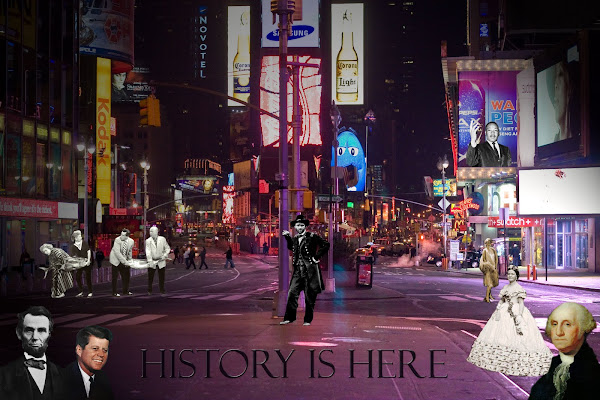One of the most common questions asked by students in subjects like history is, "why do I need to know this?" Aside from the age old answer of, "because if you learn history, you can keep it from repeating itself," (which is clearly ineffective, and becomes increasingly more obvious as you actually learn history) there is the answer of "because you can actually use history in your life." As teachers, we often get so wrapped up in teaching students the content that we forget to tell them about the incredible real-world and career possibilities that can be achieved with the knowledge we give them. My 8th grade history teacher simplified it down to a bare minimum of needing to know history in order to understand historical films and being able to answer the historical questions in "Trivial Pursuit," but I have always believed it to be so much more than that. Having a degree in history can be useful for all kinds of things such as teaching, archeology, museum work, and preserving historical documents. Last summer, I had the opportunity to visit Washington D.C. for the first time in my life. My dad wasn't thrilled when I insisted that we stand in line for hours at the National Archives to see the Declaration of Independence, but he relented because he knew I had been wanting to see it since I learned about it as a child. The interesting thing about the National Archives is that there is more than just history at work there. Unlike the other museums in D.C, the documents on display in the archives have been preserved using the most advanced technology available to preserve them. In fact, historians worked closely with NASA to design the casing, which the documents are currently displayed in. It features special lighting, a helium, temperature controlled atmosphere, and several layers of glass. For students who have no interest in learning history, this would be an incredible real-world scenario for them to relate to. It combines history with technology and science, and is a viable career for students to consider. So next time a student asks you why they need to learn history, don't tell them it's to stop history from repeating itself, or to increase their chances at winning "Trivial Pursuit." Show them a real-world, modern day experience that they might be able to relate to. Kids today love technology, and you are sure to peak their interest when you show them that you can not only combine the new with the old, but also use the new to preserve the old. The Library of Congress also is also famous for its document preservation, and has a lot of interesting information on its website as to how it accomplishes this task.
Document Preservation in the Library of Congress
Subscribe to:
Post Comments (Atom)

No comments:
Post a Comment